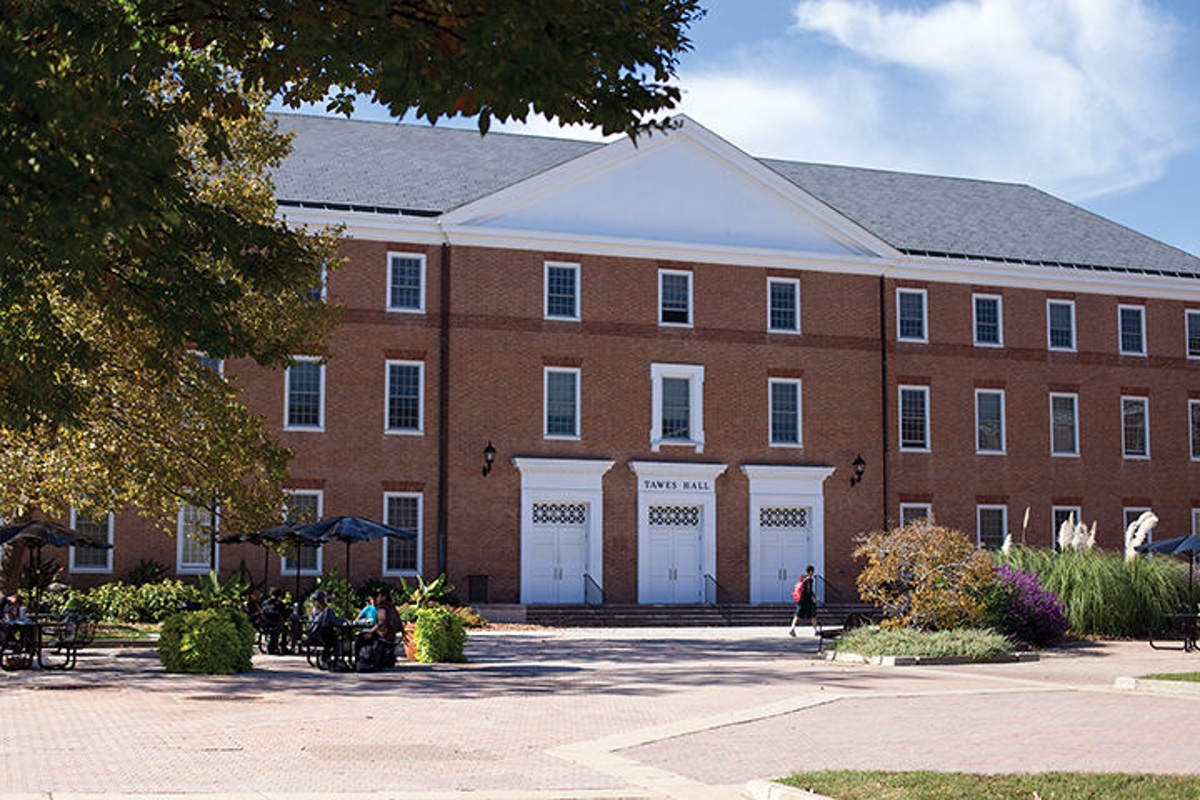Lecturers and senior lecturers within the University of Maryland English department said they are prepared to take whatever steps necessary to end “the exploitive labor practices on non-tenure track professors,” including discussions with representatives beyond the university, said Marybeth Shea, a senior lecturer and winner of the English Department Professional Track Faculty Teaching Award.
Instructional professional track faculty are usually labeled as lecturers or senior lecturers at this university. Instructors within the English department with these titles have been fighting for higher wages for many years, especially because the professional track faculty are not paid a salary; instead, these teachers are paid by the course, Shea said.
“We’re a Maryland entity and the next step is [for] individuals [to] speak to their representatives and as a group we speak to the Higher Education Commission,” said Shea, who has been teaching at this university since 1986. “We’ve done everything internally, and because we’re a state institution we can ask our legislators … to help us with our unfair labor practice situation.”
Professional track faculty are professors who are not eligible for tenure or a permanent job contract, either because they do not have a doctorate or Master of Fine Arts or because a tenure track position in their specialty is not available. Instructional professional track faculty have titles such as lecturer and senior lecturer, while titles such as adjunct faculty refer to other categories within professional track faculty. Tenure track faculty are called assistant professors, associate professors or professors.
Increased wages are a topic of conversation across this university and the country, said John Bertot, associate faculty affairs provost. However, the English department is especially focused on the issue because many staff members are professional track professors, said Pamela Gerhardt, a senior lecturer in the Professional Writing Program.
There are 111 instructors in the university’s English department labeled as professional track faculty, 76 of whom are instructors within the Professional Writing Program. Most of the classes taught by professional track professors are on the CORE curriculum, meaning everyone has to take the course, Gerhardt said.
Although professional track faculty do not have the same research requirements as tenure track professors, they teach more courses than tenure track professors, said Eric Adler, an associate professor in the classics department.
“Professional track [lecturers] normally teach four teaching loads, whereas a tenure track [lecturer] teaches two teaching loads; yet the latter group has a higher salary,” Adler said.
At this university, professional track faculty such as Gerhardt are being paid between $4,575 and $5,615 per class, while the Modern Language Association, the governing organization over humanities departments worldwide, recommends between $7,350 and $8,020 per course. This means Gerhardt makes about $43,000 a year.
“That’s $43,000 for eight sections, and that’s not a livable wage in the Washington, D.C. area,” Gerhardt said.
Additionally, the Modern Language Association suggests lecturers only teach three courses per semester, whereas Gerhardt and others are “teaching, if you will, overtime,” by taking on four sections.
“If I was teaching the three sections that they recommend, I’d only be making $32,000 in Washington, D.C.,” Gerhardt said. “I think the most important thing that people should know is that we cannot live in the Washington, D.C. metropolitan area on our current wages.”
A proposal requesting an increase in base lecturer wages to $7,350 was submitted by English department Chairman Kent Cartwright about three weeks ago.
There is “no status” on the proposal, Cartwright said. Cartwright declined to give further comment.
Despite the university’s goal to rank competitively next to other Big Ten schools, the English department’s pay ranks within the bottom five among the 14 Big Ten schools, according to the proposal. The administration is aware of the matter and is taking all considerations and information into account, said Bonnie Thornton Dill, the dean of the arts and humanities college.
“This matter has been brought to my attention, and it’s an issue that will be considered in light of the needs of the entire college,” Dill wrote in an email. “After consultation with English leadership and the Office of the Provost, I seek to develop an appropriate response.”
Although the cost of living in Washington is high, lecturers in places such as the University of Michigan – a Big Ten school located in a much cheaper place to live – make almost $8,000 per course, Gerhardt said. Housing in Washington is 88 percent more expensive than in Ann Arbor, Michigan. Living expenses in Washington are also 39 percent higher than in Ann Arbor.
“I’ve been teaching at the university for 18 years … I love teaching. My students like me very much, I’m very successful at what I do and [I] teach CORE classes,” Gerhardt said. “That should be valued more because no one at the university can get a degree without taking one of our classes.”
In 2011, a study by a Faculty Affairs Committee — a part of the University Senate meant to review faculty life policies — noted concerns among the professional track faculty. In 2012, a Joint Senate-Provost Task Force on Non-Tenure Track Faculty consisting of professional track faculty representatives made 21 recommendations to improve standardization of titles, promotion policies and introduced awards for professional track faculty, Bertot said.
“You have to look at that broader spectrum of initiatives that have gone on in faculty life that we’ve had direct input into and relationship with over these last several years,” Bertot said. “I think we should recognize that pay isn’t just a professional track faculty issue. I really would like to see us pay everyone more.”
The university’s strategic plan from 2008 has been updated recently to include “new language that was not in the first version that acknowledges there needs to be increased funding for instructional faculty salaries,” said Mark Arnold, faculty initiatives director in the Office of Faculty Affairs.
Despite these efforts — which include adding more seats on the University Senate for professional track and increasing wages, such as a recent 2.25 percent raise that will go into effect in the fall and increase senior lecturer rates from $5,492 to $5,615 — none of these initiatives address the key issue of a living wage, Gerhardt said.
“They’ve been giving us little things here and there,” Gerhardt said. “They’re starting to respect us as a part of the academic community, but now the last piece that we need is a living wage in the Washington, D.C. area.”
While speaking and working with administration throughout the year, including the faculty senate, the provost, the dean and the faculty affairs office, “we learned that the higher-up administration … didn’t know what [professional track faculty] do. They thought [all of us] were grad students, they didn’t know how much we get paid and they didn’t know there were 70 of us [in the Professional Writing [Program],” Gerhardt said.
“For years our biggest strategy was [to] go to the [English] chair and say we need more money, and the chair would say we don’t have any money, there’s no budget for that,” Gerhardt said. “This year we said, ‘You know what? We’re going to take this further, because this is just insane, it has to stop.”
CORRECTION: Due to a reporting error, a previous version of this story incorrectly stated English department Chairman Kent Cartwright reviewed a proposal that requested an increase in base lecturer wages. The proposal was submitted by Cartwright, not to him. This story has been updated.



